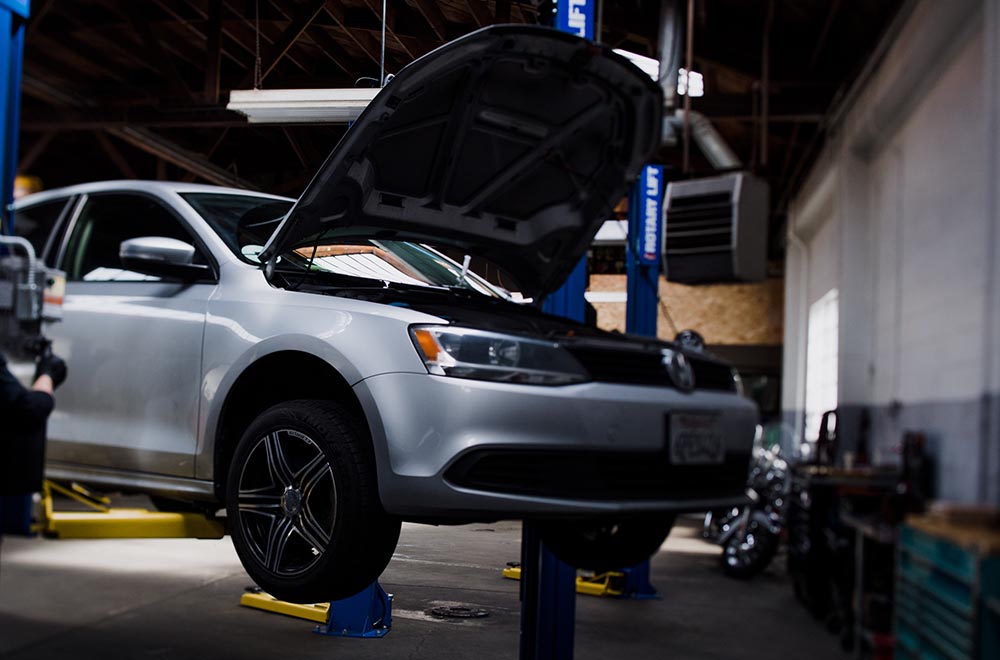Skip to content
Samson Automotive Mechanic Services
- Oil change: This service involves draining the old oil from the engine, replacing the oil filter, and adding fresh oil. Mechanics will also check the air filter, belts, and hoses during an oil change. It’s recommended to get an oil change every 3,000 to 5,000 miles.
- Brake service: Brake service includes inspecting the brake pads, rotors, and calipers for wear and damage, checking the brake fluid level, and adjusting the brakes as necessary. It’s recommended to have your brakes checked every 10,000 miles or once a year.
- Engine tune-up: An engine tune-up may involve replacing spark plugs, wires, and distributor caps, as well as cleaning or replacing the air and fuel filters. This service can improve performance, fuel efficiency, and emissions.
- Transmission service: This service involves draining and replacing the transmission fluid, replacing the filter, and inspecting the transmission for wear and damage. It’s recommended to get your transmission serviced every 30,000 to 60,000 miles.
- Suspension repair: Suspension repair can include replacing shocks, struts, springs, or other components to improve ride comfort and handling. Signs that your suspension may need repair include a bouncy or unstable ride, excessive tire wear, or a clunking or knocking sound when driving over bumps.
- Electrical system diagnostics and repair: Electrical system diagnostics and repair involves identifying and fixing issues with the battery, alternator, starter, or other components that can cause problems such as dim lights, a weak or dead battery, or difficulty starting the engine.
- AC system repair and recharge: This service involves finding and fixing leaks, replacing components such as compressors or condensers, and refilling the refrigerant to ensure that your AC is functioning properly.
- Wheel alignment: This service involves adjusting the angles of the wheels to ensure that they are parallel and perpendicular to the ground. Proper wheel alignment can improve handling, reduce tire wear, and improve fuel efficiency.
- Tire replacement and balancing: Tire replacement involves replacing worn or damaged tires, while tire balancing involves ensuring that the weight distribution of the tire and wheel assembly is even. Proper tire balancing can improve ride comfort and handling and reduce tire wear.
- Exhaust system repair: This service involves replacing components such as mufflers, catalytic converters, or pipes to ensure that your vehicle’s emissions are within legal limits and that the exhaust system is functioning properly.
- Cooling system service: Cooling system service can involve flushing and refilling the coolant, replacing the radiator or other components, and checking for leaks or damage. Proper cooling system maintenance can prevent overheating and damage to your engine.
- Fuel system cleaning and repair: Fuel system cleaning involves cleaning or replacing fuel injectors, fuel filters, and other components to ensure that your vehicle is running efficiently and that fuel is being burned cleanly.
- Battery replacement and testing: Battery replacement involves replacing a worn or dead battery, while battery testing involves checking the voltage and amperage output of the battery and the charging and starting systems.
- Timing belt replacement: This service is crucial to prevent engine damage or failure. The timing belt keeps the engine’s valves and pistons in sync, and it should be replaced according to the manufacturer’s recommended schedule.
- Engine diagnostics: This service involves using specialized tools and equipment to identify and fix issues with the engine, such as misfires, rough idling, or low power output.
- Pre-purchase inspections: Pre-purchase inspections can help you make informed decisions when buying a used vehicle by identifying any issues or potential problems that the vehicle may have.
- Emissions testing and repair: Emissions testing and repair can ensure that your vehicle meets legal emissions standards and is not contributing to air pollution.
- General maintenance services: General maintenance services can include regular checks of fluid levels, filters, and other components to ensure that your vehicle is running smoothly and prevent more expensive repairs down the road.


